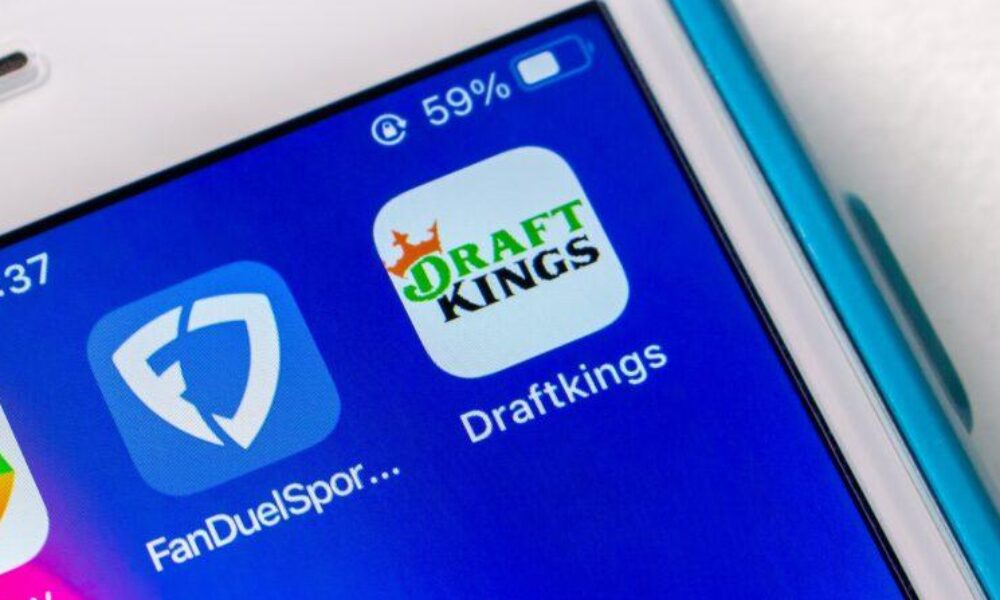In the latest round of DraftKings and FanDuel going rogue, both resigned from the American Gaming Association (AGA). A few days earlier, they declared their intent to choose the unregulated prediction markets over a Nevada license. Leaving the AGA was an amplification of that exit. An AGA spokesperson said, “In discussion with DraftKings and FanDuel, the AGA has accepted their request to relinquish their memberships, effective immediately. We wish them the best, and we expect to maintain close ties in our mission to promote and protect legal, regulated gaming.”
Maintaining close ties with the sports betting rogues will not be easy for the AGA. The Association’s mission and job are to promote legal and regulated gaming and to oppose illegal and unregulated gaming. DraftKings and FanDuel have another mission. The two sides are separated like the protagonists in Rudyard Kipling’s “The Ballad of East and West.” It begins, “Oh, East is East, and West is West, and never the twain shall meet.” Kipling’s protagonists end respecting each other, but knowing that when war comes, as it surely will, they will be in opposing camps.
DraftKings and FanDuel are the rebel tribal chieftain in the poem, while the AGA is the proper British colonel: When war comes, the friendship ends. DraftKings and FanDuel are committed to pursuing opportunities for revenue without regard to legality and regulation. Both have promoted themselves and exploited any loophole available since first bursting on the scene in 2015.
In an oft-told tale, in September 2015, I was visiting my sister in Decatur, Illinois. The San Franscisco 49ers were playing on Monday Night Football.
My sister and I watched the game together, more to enjoy each other’s company than a dedication to the sport. In 2015, Illinois did not have 50,000 slot machines in small retail businesses as it does today, including in Decatur. And the Land of Lincolners did not bet $1.4 billion on sporting events as they did in September 2025. The nine or ten casinos in the state were sitting on the water, far away from most people. The remoteness of gambling made the events of that evening even more startling.
The game was inundated, swamped, overwhelmed, and overrun by gambling advertisements. FanDuel and DraftKings were in a bitter fight for market share in a then-gray area, the unregulated sports betting marketplace of fantasy sports. The New York Post reported DraftKings as “the No. 1 advertiser on TV last week, spending $21.8 million on roughly 5,800 commercials in the seven days ended Sept. 10.” Technically, it was not sports betting, in the same way that sweepstakes casinos are not technically casinos. However, most of the AGs in the United States considered fantasy sports illegal, at least as it was practiced by those two.
It took years, but DraftKings and FanDuel migrated to legalized sports betting as it spread across the country. Today, sports betting is generating billions in wagers, $15 billion in September 2025. Just over 30 states contributed to that number, but it does not include states with legal sports wagering operated by Native American tribes, so the real number is much greater. The majority of the wagering is done remotely. It is big business, very big business. DraftKings and FanDuel have a 70-80 percent market share. They’ve gone from gray-area operators to the King Kongs of sports wagering in the country.
However, there are still some states where sports betting is not legal — notably, California and Texas, with 70 million people between them. A newly emerging prediction (futures) market is capturing some of the unregulated markets. It is a model based on stock-trading practices and as such, is legal everywhere. It is perfectly adapted to remote transactions. Speculating on the outcomes of sporting events is being tested in many places. It is running afoul of gaming regulators and law enforcement officials in most jurisdictions.
Nevada gaming regulators have declared predictions to be unregulated and therefore illegal sports wagering. No Nevada licensee will be allowed to conduct prediction activity on sports and thus, the divorce with DraftKings and FanDuel. Other states are taking a similar stance. So far and for the most part, the courts have supported the position of the regulators. However, the litigation is far from over. It will be lengthy and expensive and the outcome is a long way from being certain. What is certain is the battleline. On one side are the gaming regulators, state law-enforcement agencies, licensed operators, Native tribes, and the AGA. On the other, the prediction and futures speculation operators. It also includes traders of stocks and derivatives on every stock exchange in the world.
The armies are gathering their forces, developing strategies, and preparing for battle. DraftKings and FanDuel are seasoned warriors with well-stocked war chests. They will be formidable adversaries and they will not be alone; others from the Wall Streets of the world will be on their side. The American Gaming Association is also seasoned, as are members and allies in gaming regulation and state legislatures.
“Oh, East is East, and West is West, and never the twain shall meet.” The battlelines have been drawn, the stakes are high, the outcome uncertain. Casualties could be high. But the war is now clearly unavoidable.



